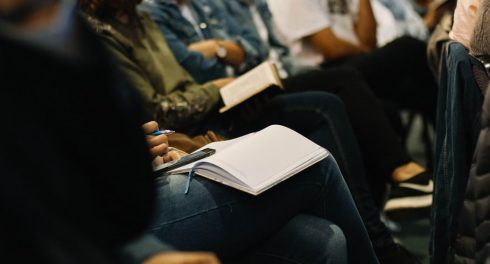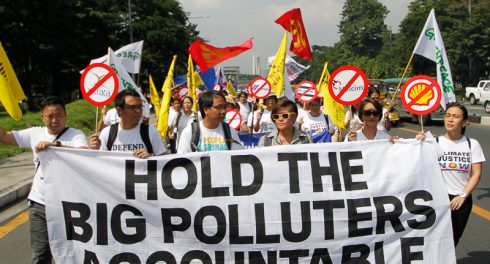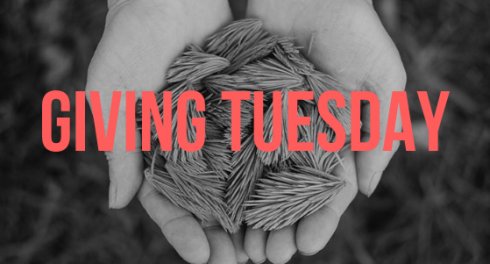We wrap up November with another packed Weekly ranging from lessons from twenty years of governance programming to making the most of national data portals to findings ways to increase participation to tackle climate change.
Plus, the rise of “lawfare” to hamstring anti-corruption activists, reshaping local and international CSO relationships and some things to be thankful for.
Enjoy!

Yery,
Highlights
- I am thankful for philanthropy
- Take notes – programming insights for funders and practitioners alike
- #TAIRecommends
- Open-data progress, statistics portals and the decentralized web – final line of defense?
- Democracy in the spotlight – ideas for the upcoming Summit
- Going green ain’t easy – fiscal implications, where the money goes and competing interests
- Blow the whistle, recrimination risks, avoiding email and potential regulatory bright spots
- TAI spotlight
I am thankful for philanthropy

Last week, many people in the United States celebrated Thanksgiving, and, as much as we may agree or disagree with this holiday, in the world of philanthropy there are at least some things to be thankful for according to Vu Le. “Donors recognizing their privilege and actively fighting for a just world” and “Foundation staff pushing within their own orgs” resonate – both trends we are glad to say we are noticing in a TAI context, too, though with more to do.
Take note – programming insights for funders and practitioners alike
We kick things off with this report digging into 20 years of UK funded governance programmes in Nigeria. How can governance reforms be sustained over time? How have specific ways of working contributed to governance, health and education? These are among the questions covered with highlights captured here (courtesy of Duncan Green).
On a broader note, ten years after proposing “The collective impact approach” to address social problems, John Kania, Junious Williams, Paul Schmitz, Sheri Brady, Mark Kramer and Jennifer Splansky Juster reflect on the central role of equity to improve collective impact efforts.
Last Monday we recommended on Twitter Bob Mattes and Christiaan Keulder piece addressing why Africans are dissatisfied with democracy? Think corruption. Take a look to this fifth Afrobarometer’s special #SummitforDemocracy series in the Washington Post.
If you have an interesting piece to flag, tag @TAInitiative on Twitter or use the hashtag #TAIRecommends in your social media posts.
Open-data progress, statistics portals and the decentralized web – final line of defense?
Looking for a new tool to follow the coverage and openness of official statistics in several countries? Search no more, the Open Data Inventory offers an up-to-date assessment on the progress of open data in 187 countries. You can also find a holistic method to evaluate national data portals and some recommendations to improve their use and function by clicking here.
Santiago Mas applauds Mexico´s attempts to tackle transparency issues and online information privacy with groundbreaking legislation and regulations. However, there is much to be done in a country considered as one of the most dangerous places for information professionals and journalists in 2021. The use of ICT has made easier to document right abuses and has provided smarter, better and faster tools for journalists and activists, but also has brought challenges like the rise of deepfakes. Caitlin Thompson explores how the decentralized web can help in supporting activists globally in an ethical and equitable way.
Open data and open-source investigation tools are also a way to force accountability, especially in countries where the democratic space is being eroded. Karen Allen explores the differences between leaked data (the Pandora and Panama Papers) and open-data to hold those in power accountable.

Ingrid Srinath on COVID-19, Corporatisation and Closing Space: The Triple Threat to Civil Society in India. The lecture is part of the LSE ID Cutting Edge Issues in Development Thinking & Practice series.
Democracy in the spotlight – ideas for the upcoming Summit
With the Summit for Democracy fast approaching worth reading Mark Cridge on the need to repower democracy if we are to mitigate the biggest challenges facing us all (he goes on to say how My Society plan to evolve their working accordingly).
One theme of the upcoming Summit is anti-authoritarianism, so interesting to read Claudia Escobar Mejia’s call on Washington to take on Central America’s kleptocrats.
Want some inspiration? Perhaps easier to find at local level. Check out all the Open Government Partnerships local action plans for this year.
Going green ain´t easy – fiscal implications, where the money goes and competing interests
Staying at local level, a new World Bank working paper explores the fiscal decentralization implications of the climate crisis and how to involve subnational governments on climate change mitigation and adaptation.
Coming out of COP26, Mark Lowcock notes that deliberations placed greater emphasis on the need to raise financing more than how the money is actually spent. He offers suggestions on how development leaders can get more from their money. For her part, Mariana Mazzucato says that even delivering on what was agreed in Glasgow, “will require innovation and experimentation at all levels of governance, where the focus should be on expanding participation.” (TAI is delighted to be partnering with Ariadne network to host a webinar on climate assemblies and lessons from participation tomorrow.)

Image Source: The Conversation
Great power rivalries might not help the institutional reform required. Take the high demand for cobalt, vital for electric vehicles and clean energy efforts, but with supply chains caught up in greed and gamesmanship. A New York Time series details how this plays out in the Democratic Republic of Congo often to the detriment of Congolese. Make sure to check out the accompanying photos.
Meantime, Sheryl Lee Tian Tong notes the challenges we face protecting existing forests and biodiversity, detailing how the Mekong Delta is a hotbed not just of wildlife but crime.

The first of the #MidanSpeaks webinar series: “Relationship Between Local CSOs & INGOs: What Works? What Needs To Change?
Blow the whistle, recrimination risks, avoiding email and potential regulatory bright spots.
Could whistleblowing play a transformative role in the fight against global corruption and reduce the cost of financial crimes such as bribery and money laundering? Dambisa Moyo considers whistleblowing uses and limitations as the last line of defence against official corruption and corporate malfeasance.
It doesn’t help that wrong the corrupt and their surrogates are using “lawfare” to shut down those speaking out. Eva Joly details the legal tactics used to discredit and worse anti-corruption activists (including examples featuring TAI member partners.)
Another sign of how those looking to cheat will adapt in new research at financial services firms. Turns out those breaking rules have shifted to video chat to avoid leaving an email or text trail (although worrying transcripts are a tiny percentage overall).
In our recommended reading, the authors ask whether one of the reasons Africans might be dissatisfied with democracy is corruption. It comes as no surprise then how illicit financial flows are having a negative impact on tax revenues. Check out this visual showing the billions lost.

Imagen Source: Concerto
Corruption also makes headlines in Latin America. This week it emerged that the president of Brazil’s Olympic Committee and the former mayor of Rio de Janeiro have been sentenced for bribery in securing votes for Rio to host the 2016 games.
Finally, two positive market signals – first regulators set out a global framework on Tuesday to police environment, social and governance (ESG) investment ratings and help combat ‘greenwashing’ in the fast-growing, multi-trillion dollar sector. Second, the Fair Tax Mark goes international with accreditation of European energy firm Vattenfall – the first outside the UK.
Hewlett Foundation announced $5.5M in grants to 22 groups supporting the increasing needs of the AAPI communities, particularly in light of rising anti-Asian violence.
Transparency and Accountability Initiative co-hosted a discussion with the World Bank, IDinsight, the Bill & Melinda Gates Foundation and USAID on the role of civil society in tax administration.
Ford Foundation announced their continued support to Sesame Street. Thanks to Ford Foundation, this essential show welcomes Ji-Young, the first Asian American muppet.
MacArthur Foundation’s launched a report that draws upon data from a sample of peer philanthropies with an aligned focus on and commitment to advancing racial equity. “The broad goal of the inquiry is to surface strategies, conceptualizations, approaches, and activities conducted by peer organizations that may inform Chicago Commitment’s ongoing work”.
Jobs at TAI members
Job postings at Hewlett Foundation – Ongoing
Job postings at MacArthur Foundation – Ongoing
Job postings at Open Society Foundations – Ongoing
Job postings at Luminate – Ongoing
Job postings at Ford Foundation– Ongoing
Job postings at FCDO – Ongoing
Job listings
Trustee position on the CoST Board at The Infrastructure Transparency Initiative (CoST)– December 1, 2021
Programme Officer (Governance and Anti-corruption) at UN Global Compact– December 1, 2021
Calls/Opportunities
Board of Trustee at Integrity Action – December 31, 2021
West Africa Civil Society Institute (WACSI) call for papers and articles – Open year-round
Free digital security training– Ongoing
Call for proposals: Informality, tax, and the state – Proposals accepted on a rolling basis
RightsCon call for Proposals for 11th Summit Series– January 13, 2022
Calendar
Ronald Deibert on “Digital subversion: the threat to democracy”- December 01, 2021
Access Now Freedom Online Conference– November 30 to December 3
CoST at the US Democracy Summit: Building back with integrity– December 8, 2021
Political Polarization and Municipal Government Accountability during the COVID-19 Pandemic in Mexico – December 8, 2021
The Summit for Democracy – December 9-10, 2021
Open Government Partnership Global Summit – December 13-17, 2021
Annual Anti-Corruption Lecture by leading anti-corruption advocate Dr. Ngozi Okonjo-Iweala– December 15, (18:30 GMT)
International Convention on Anti-Corruption, Good Governance, and Human Rights – April 21-22, 2022 (Boston, MA)
Want to stay updated on happenings around the TPA sector, sign up for our newsletter here



